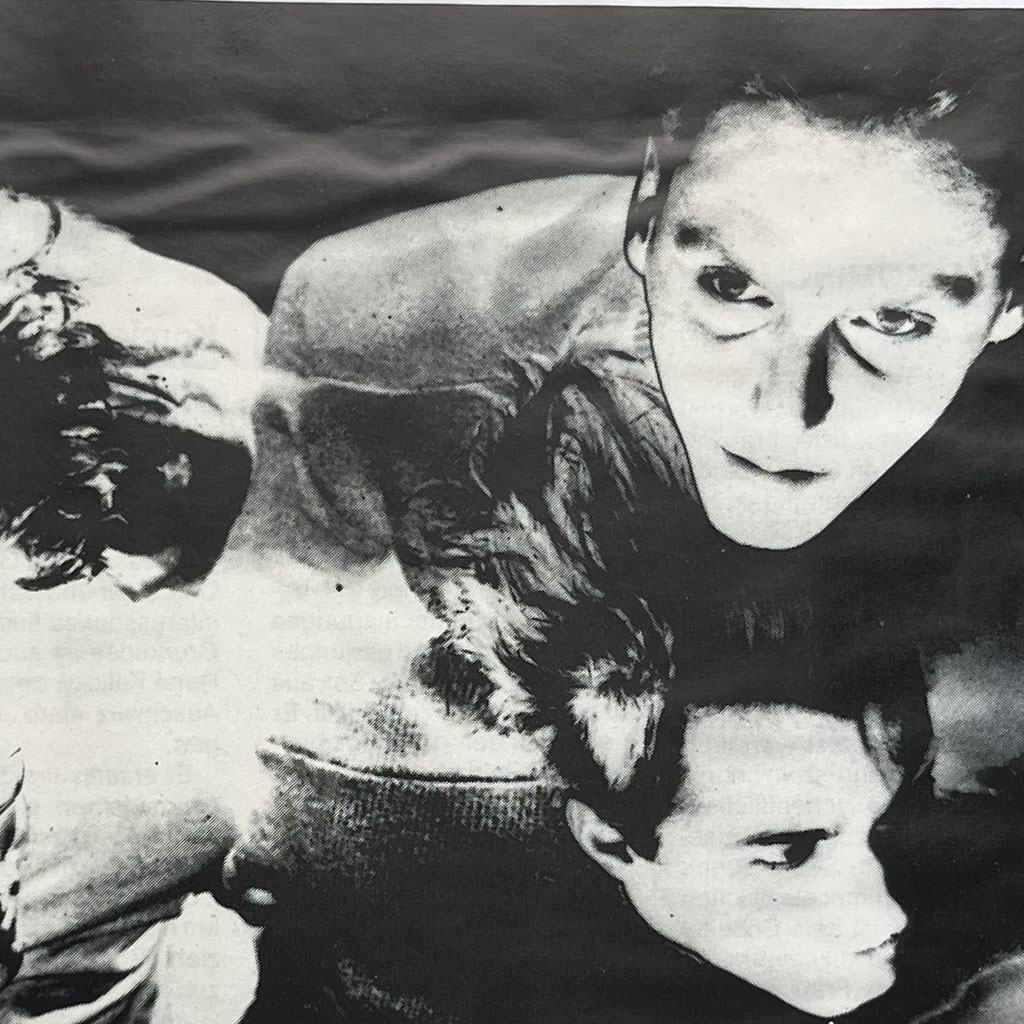Interview with MYRNA LOY (2/2)

“… like an over-revved lawnmower that has gotten out of control.”
2 facts:
– In 1989, Myrna Loy were the only German band to place alongside Jingo de Lunch and Einstürzende Neubauten in the SPEX/WOM annual sales charts
– “We wanted a band name that didn’t put us directly into a specific musical genre. Which also fitted in with our strategy of not allowing ourselves to be pigeonholed …”, Victor D. explained to us on the digital release of the debut album at the beginning of the year.
In our second part of the interview, we talk to Victor about challenges and take a closer look at some of the songs from the second album “Time Says Helay”, which is now available digitally for the first time. Missed the first part? No problem, you can read it here.
Challenging
O: Were there any particular challenges while working on the album?
VD: No, it was the best time for Myrna Loy. We concentrated fully on the music and you can hear that on the album and the concerts we gave in 1990/91. From today’s perspective, I would have chosen different songs for the album. For example, I would definitely see “La Beija” as part of the second album today.
Sense of smell?
O: The album starts with “Hello, I Love the Way You Smell”. I found the song spherical, but somehow also tragic, although I can’t really explain that. Can you understand what I mean? How do you feel when you listen to the song today and how did it come about back then?
VD: It’s interesting that you ask this, because there really is something tragic about it. The title of this song came directly from observing my closest environment. I was living with a good friend in a shared flat at the time. This friend constantly had non-reciprocal friendships with other women and sometimes suffered greatly as a result. I always asked myself, how can you put up with this in the long term and what is the reason for making the same mistake every time? The title of the song was then my somewhat sarcastic, perhaps even cynical derivation of the reason.
Mesmerizing
O: The single “Corilo” was chosen from the album. The song has something very mesmerizing and gripping about it. How did it come about back then?
VD: That’s a good question. I myself can’t remember exactly how it came about. But I do remember that it immediately appealed to a lot of people, especially Eduard and Stefan, the two key people at our label Normal at the time.
Open doors?
O: There was also the intense live version of “Myrna Opens the Doors”. Is there a story behind it?
VD: “Myrna Doors” came about after we talked about The Doors, a band we all liked. There had been two or three songs before that were heavily inspired by “The End”, but they never made it onto an album. Our drummer had one of his best moments on “Myrna Doors” – it’s one of our most organic songs ever. The live version was always better than the one on the album. During the recordings in the studio, we finally parted ways with our drummer. Unfortunately, we then had to do a lot of programming.
Over-revved lawn mower?
O: Another song that really inspired me was “Lustine”. What is this song about?
VD: I can’t remember the exact process of its creation. But the “hysterical” guitar solo played the biggest role in this song. I still like the hysterical element of the guitar solo today. On stage, the guitar was like an over-excited lawnmower that got out of control.
Favorite …
O: With your own songs it’s almost impossible … but do you have any personal favorites from the album?
VD: Yes: I have a very close relationship with the song “ROT”. It’s actually a kind of movie score for me. The song would also fit perfectly with one of my favorite films: “Blade Runner I”. The track was created in several stages, first in the rehearsal room with vocals, synth and guitar, then the violins were added and finally a pianist friend of mine, who was studying new music, recorded the piano sequence completely live in one take. However, the mix in the studio was a real challenge as several tracks of our 8-track device had to be used. This is also the only song that we never played live.
While searching for usable live versions, I discovered a “Decamerone” version together with Alex, the keyboard player, that I had completely forgotten (“Decamerone-Chanson”). In retrospect, I think this live version is very successful because it never gets boring over almost seven minutes and reflects a wide range of musical influences, but overall has a very organic effect.
Incidentally, the song that went down best with almost every audience was “Lebetor” right from the start. We actually almost always had to play it, usually as an encore at the end.
Music of the future
O: What are Myrna Loy’s plans for the future? Are there also plans to make the third album available online in an extended, remastered version?
VD: Yes, the third album is also due to be released this year via Lost Albums and we will all be meeting up this week for the first time in almost 30 years. Let’s see what else we can do.
Claudia Zinn-Zinnenburg
Line-up:
Victor D. – vocals
Mikele – guitar
Cord D. – bass
Alex – keyboards, sampler
Lothar Loy – drums
Listen to “Time Says Helay”:




